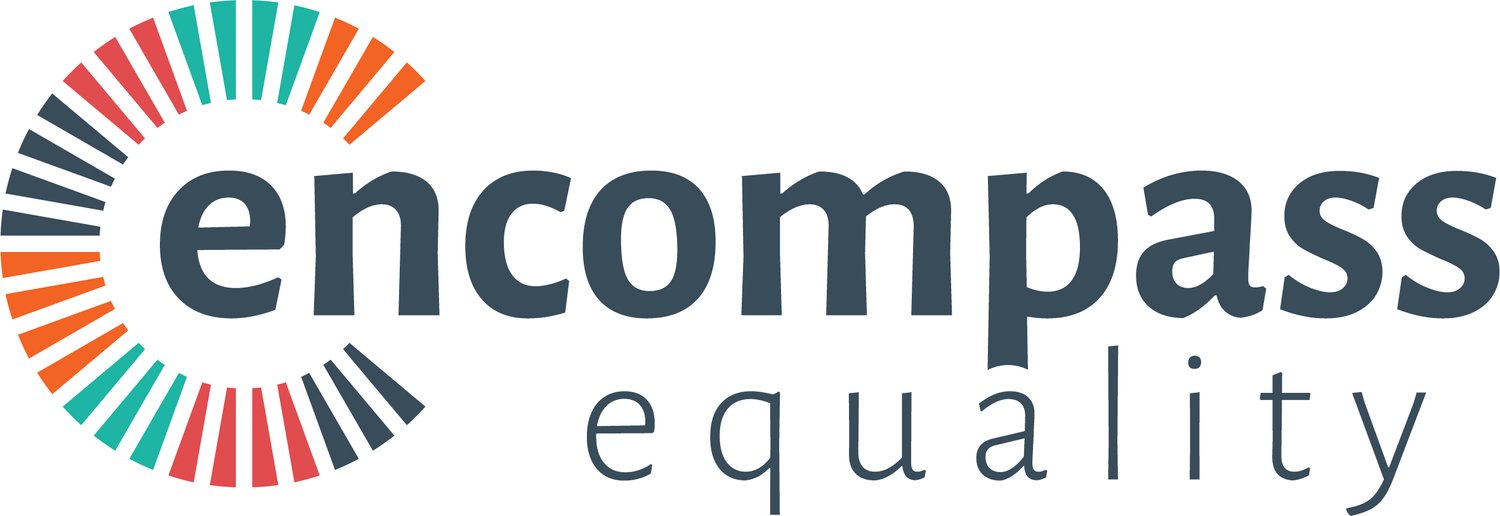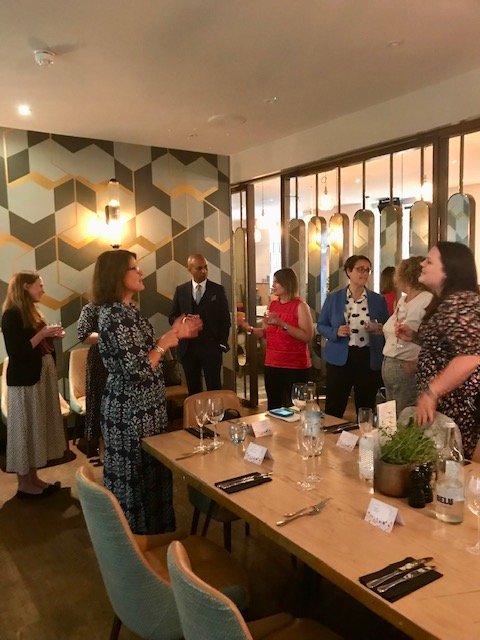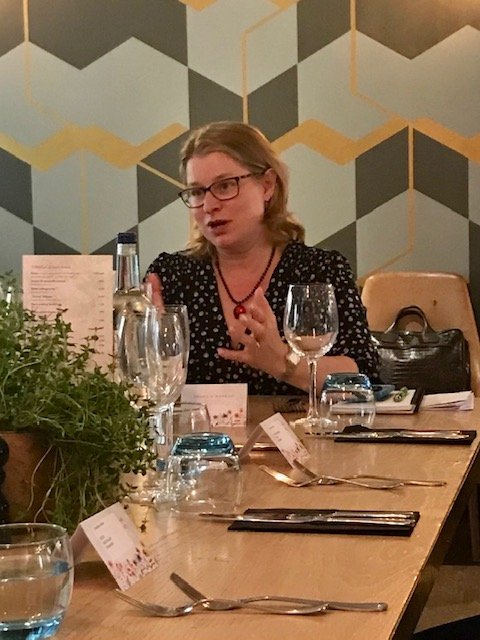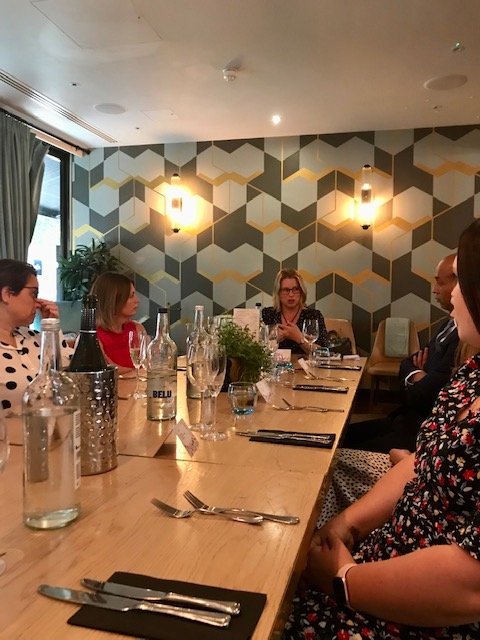Understanding the impact of menopause at work
Once a taboo subject, the menopause is now a hot topic in the workplace. The symptoms and side effects of the menopause for some women can be debilitating, have a major impact on confidence levels and wellbeing and can lead to many days of sick leave, taking extended time off work or leaving the workplace altogether. Although some organisations have started to increase support for women in this area, there is still much more that can be done.
With women of menopausal age being the fastest-growing demographic in the UK workforce today, menopause is not just a women’s issue, but a workplace issue. Leaders are beginning to recognise that supporting women with the menopause can help increase retention, reduce the cost of absence and potential employment disputes, and ultimately result in happier, healthier and more productive employees.
With many organisations planning to expand provision of menopause support, we hosted a lunch on this topic to hear what some companies are doing, and share initiatives, ideas and best practice. Thank you to all the amazing organisations who contributed their ideas: GSK Healthcare, Wickes, Cornerstone Barristers, East of England Co-Op, Irwin Mitchell and Noon.
“I really enjoyed being part of a wonderful lunch on ‘How to retain women: understanding the impact of menopause at work’ hosted by Joy Burnford. It was inspiring and thought provoking to meet so many talented individuals and share ideas and best practice. I had a wonderful time, and my head is still buzzing from the conversations we had and the variety of different thoughts on how we can improve our support to women around the menopause.”
This is what we learnt.
Focus on what senior women need to create the impact they want
The first step is to recognise that midlife women do not want to be referred to as ‘menopausal’ or ‘walking hot flushes’. These women (dubbed ‘Queenagers’ in research carried out by Noon ) have experience, power and strength. They want to add value to their organisations and have the capacity to create an impact. If organisations focus on what these senior women need and give them room to create the impact they want, they will soon reap the benefits that flow.
Treat menopause as a health and wellbeing issue
Menopause should be treated as a health and wellbeing issue, not just a topic for the inclusion and diversity teams, although there is clearly a link between the two. Menopause is a natural stage of life, and it is important to recognise that women going through the menopause may have also experienced different crises at home and work (e.g., illness, issues relating to children, bereavement and financial issues). Health and wellbeing support can include:
Encouraging flexible hours to help women manage their symptoms.
Offering menopause leave or creating ‘wellbeing leave’ which can be accessed by all employees.
Providing access to medical support, e.g., specialist menopause doctors or health resources such as Peppy.
Giving employees permission to pause or longer-term sabbaticals on a personalised basis.
Introducing support groups and offering women coaching or group coaching which can give them the support and guidance needed to manage their symptoms alongside work.
Be aware of a drop in confidence levels
Many women who suffer with menopause symptoms will also experience a drop in their confidence levels at work. Organisations need to recognise this, start the confidence conversation, and provide support through training or coaching interventions.
Use age data to establish how to support women
Age is one of the protected characteristics under the Equality Act and age discrimination is where an individual is treated unfairly because of their age. Gendered ageism is the double effect of being marginalised due to both gender and age. There is an opportunity for organisations to look at data from this perspective and use the information to establish how to support women at various life stages.
Be aware of different cultures and ethnicity
We need to be aware of how menopause attitudes vary in different cultures and how menopause affects different ethnicities, particularly global organisations who may be looking at a global approach to the support they offer. For example, there isn’t even a word for menopause in some countries.
Education and awareness is paramount
Many organisations start by offering training on the impact of the menopause in the workplace for all employees, both men and women. This raises awareness of the issues and ensures that leaders and line managers are aware of what support there is. This can then be followed up with support for the individual women who need it, and training for line managers on how to broach the subject. Practical recommendations on what organisations can be doing in relation to education and awareness include:
Start colleague working groups. The power of getting a small group together can then have a ripple effect throughout the organisation.
Have menopause champions who can signpost others to the support and resources available.
Have a menopause policy in place. This is a good start and is valued by employees, although it is also helpful to have guidance notes in place that run alongside the formal policy.
Use World Menopause Awareness Month in October, World Menopause Awareness Day on 18 October 2022, and International Women’s Day on Wednesday 8 March 2023, to raise awareness. Don’t forget the power of the back door of women’s toilets to get messages out there!
Encourage employees to share their menopause experiences and personal stories – this could be a woman that has been affected in her 40/50s, a young woman that has had medically induced menopause or a man who has been affected by someone close to them. This is an easy and cost-effective solution that is highly valued by female employees.
Recognise that for senior women, menopause symptoms can be exacerbated because of their roles. Men work on 24-hour cycles whereas women work on 28-day cycles. Awareness of how these different cycles can impact productivity levels can help women manage the impact of their symptoms in the workplace.
Final thoughts
Ultimately, opening up the menopause conversation is the most important thing we can all do to make a difference. Be brave enough to make mistakes and remember it is always better to try something than to do nothing.
How understanding the impact menopause at work can help you
Book a call with Helen Beedham, our Head of Programmes, to find out more about how supporting women’s health and wellbeing can help retain women and accelerate gender equality in your organisation.




